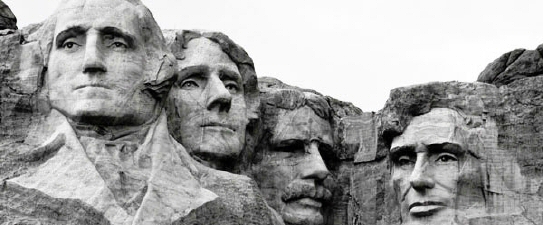 |
|

|
10AFreedom |
|
Two American Experiments with Communism: Both FailuresBy Dan Crummett As the Cold War fades in memory, and Progressives continue to take more ground in the public classroom, many students today aren’t aware of the vast consequences of living under increasingly socialistic practices. There are a couple of instances in American history, however, that point up vividly the differences between socialism and a free-market economy with private property rights … and in both cases, it only took two years for early Americans to wise up. In 1607 the first settlers reached Jamestown, Va., and found rich farmland, abundant game and more than enough fish and seafood to provide for their needs. In six months after their landing, 66 of the original settlers were dead to starvation and exposure. More settlers arrived the next year, but the same thing happened. Why? It was a matter of economic organization (to sound like Marx or one of Europe’s modern central planners), but, combined with basic human nature, it wrote a death warrant for most of those settling Jamestown. The problem? All men in the group were bonded laborers under a charter from bureacrats in England, and were bound by contract to put all they produced into a common pool to be used to support the colony – Communism in its purest form. Historian Phillip Bruce wrote in the late 19th Century, “The (Jamestown) settlers did not have even a modified interest in the soil. Everything produced by them went into the store, in which they had no proprietorship.” The result, as Bruce continued, would be what anyone who has knowledge of basic human nature would expect: even the most energetic men refused to work. After two years of suffering, in 1610 things changed with the arrival from England of a new governor, Sir Thomas Dale, who understood human nature and economics. He trashed the Communist contract and distributed three acres of land to each man present, and other than a lump sum tax of 2.5 barrels of corn at harvest, they would not have to contribute anything further to the common pool. The colony immediately began to prosper, and never again would starvation be a problem in Jamestown. In fact, surpluses were regularly produced each year thereafter. Ten years later, the Pilgrims made their historic first step onto Plymouth Rock in Massachusetts. They, too, were about to learn of the problems of “state ownership of land and the means of production,” and the utopian fallacy of “contribute all you can produce and take only what you need” as a sustainable economic system. When the colony was established, Gov. William Bradford noted in his Of Plymouth Plantation he set up rules of how harvests would be handled. What he decreed would have made Marx and Engles happy because it followed the Communist Manifesto almost perfectly. In both winters of 1620 and 1621 many of the colonists died, and by spring the food was almost completely depleted. Except for harvest time, the Plymouth colony was plagued by famine and death. During those years, Bradford wrote, “all profits and benefits that are got by trade, working, fishing, or any other means” were put into a kind of community chest and “all such persons as of this colony, are to have their meat, drink, apparel, and all provisions out of the common stock.” Or, everyone was forced to put into the common stock everything he produced, and trusted to only take what was genuinely needed from that stock during the year. To quote Karl Marx, the situation could be described as “From each according to his ability, to each according to his need.” The result, according to Bradford’s own words was, “The strong, or man of parts, had no more in division of victuals and clothes, than he that was weak.” As a result, those who were most able to contribute simply refused to work since they owned nothing and stood to gain no benefit from extra effort. Of course there was never enough food to last through the winter. In 1623, however, Bradford realized his mistake and abolished the socialist structure he had set up in 1620. Each household was given a parcel of property and told they could keep what they harvested. The famines ended, and by 1624, Plymouth colony was exporting corn. As in Jamestown a decade earlier, nothing had changed but the institution of property rights and the beginning of a free market. Similar stories can be told from the former Soviet Union when, after 70 years of Communism and perpetual food shortages, farm collectives were reduced in size and workers were given small plots of land on which to farm for their own use. The collectives continued as failures at producing sufficient food, but the privately-tended lands yielded surplus crops year after year. In the early years of the American experiment, it only took two years and several hundred lives for the colonists to realize what works and what didn’t. In China, Cambodia, Russia, and even in Cuba, the same experiments have claimed millions of lives and literally centuries of wasted time and talent.
|
|||||
|
||||||